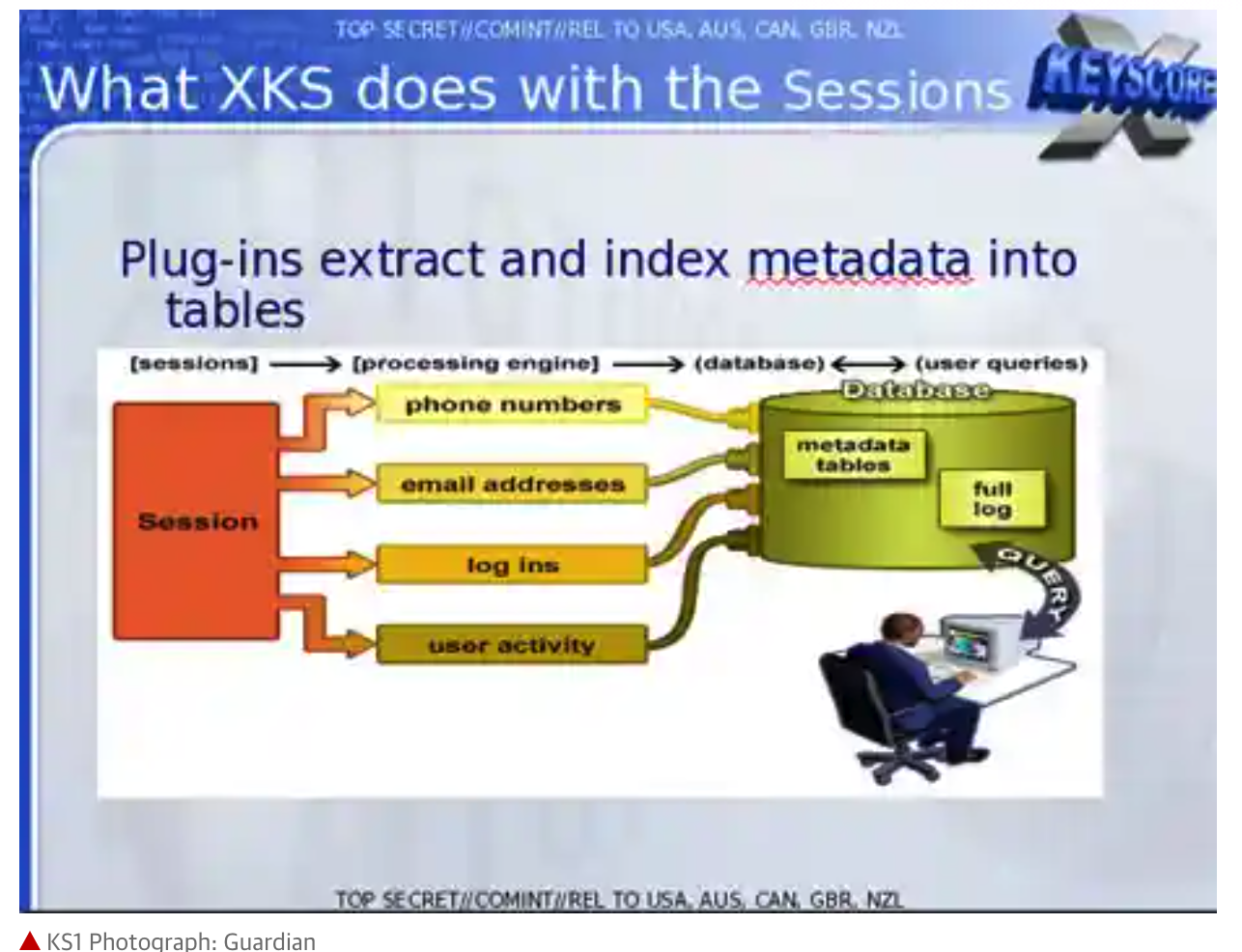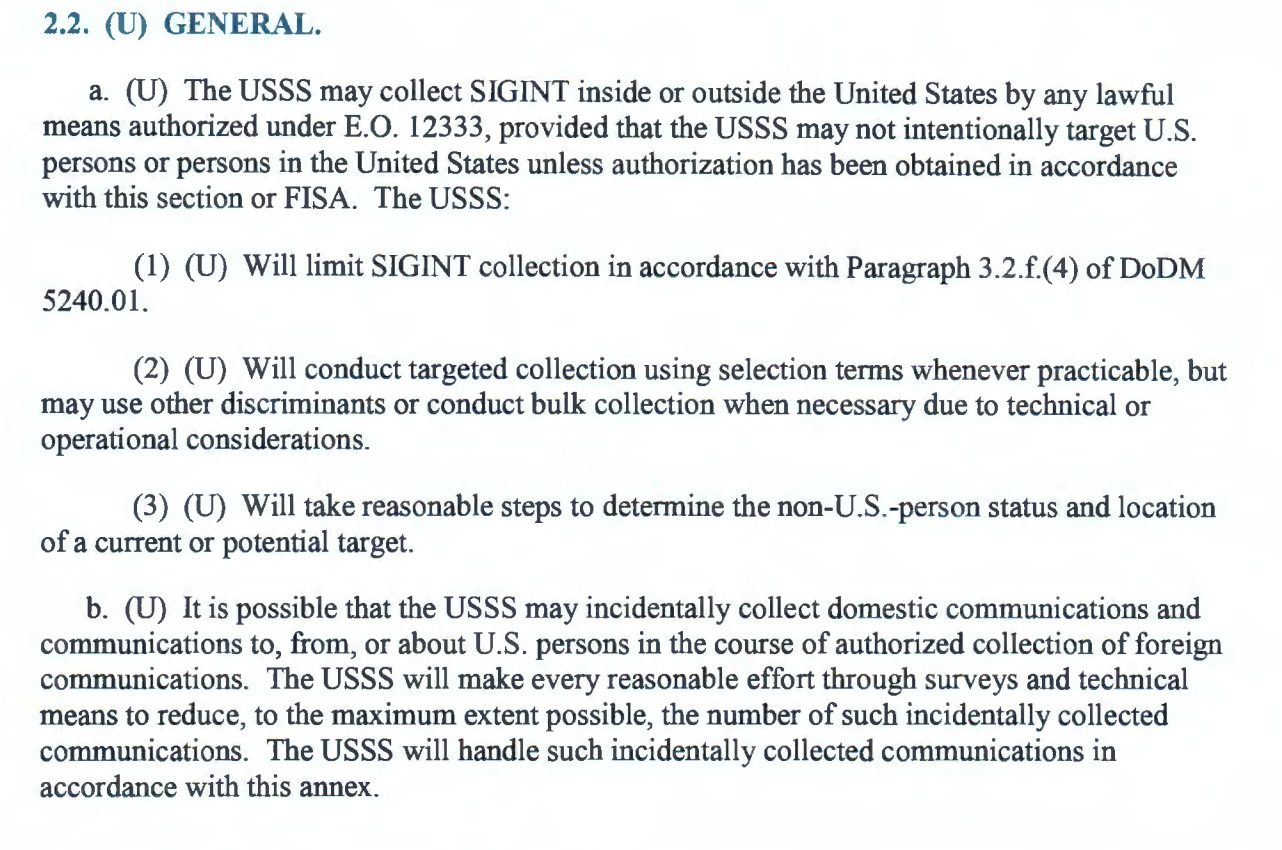On Monday, Fox News host Tucker Carlson stunned his audience with an announcement that the NSA has been spying on him. While the NSA denied his claims, Carlson doubled down on Tuesday's show.
A whistleblower allegedly came forward on Sunday, telling Carlson that he had information from Carlson's emails to which no one else had access. Carlson rightly explains that the NSA "is chartered to spy on foreigners," as Press Secretary Jen Psaki confirmed during her Air Force One press gaggle on June 28.
"The NSA has, I think you are well aware, everyone’s aware, everyone on this planet is aware, I should say, is an entity that focuses on foreign threats and individuals who are attempting to do us harm on foreign soil,” she told reporters, “So that is their purview, but beyond that, I would point you to the intelligence community.”
On Tuesday, he related communications with the NSA,
"Did the Biden administration read my personal emails? That’s the question that we asked directly to NSA officials when we spoke to them about 20 minutes ago in a very heated conversation," Carlson continued, "Did you read my emails? And again, they refused to say ... 'We can’t tell you, and we won’t tell you why we can’t tell you.' My emails. And the message was clear: 'We can do whatever we want.' "
The NSA issued a "carefully worded" statement on the matter.
Notably, in the NSA response, they do not exclude the possibility that they captured his communications as "incidental" to the targeting of someone else. Attorney and founder of the Center for American Liberty, Harmeet Dhillon, explains the meaning of incidental collection of intelligence during her appearance on Carlson's Tuesday night show. This, she explains, is the classic intelligence community answer that justifies spying on American citizens.
Matt Gaetz is calling for an Inspector General investigation into "any monitoring that the NSA or any other element of the intelligence community has engaged in relative to Tucker Carlson." Gaetz tweeted that he and Rep. Jim Jordan (R-Ohio) "have a plan" and told Americans to watch the public hearing conducted by the Committee on the Judiciary meeting on Wednesday.
During the hearing, Gaetz railed against spying by the DOJ and the intelligence communities on "members of Congress, our staff and the press for politics." Gaetz also said that the NSA's admission is so couched.
Chairman Nadler opened the "Secrecy Orders and Prosecuting Leaks" hearing with a bi-partisan effort to investigate ongoing governmental overreach and "abuses of power" concerning the communications of private citizens. DOJ, FBI, and NSA were mentioned as offenders in recent abuses of power. The Justice Departments and Security agencies from the current administration and prior administrations were also named, including Nixon's, Bush's, Obama's, and Trump's.
Nadler explained:
"A free press is vital to a democratic system, and the constitution grants extraordinary protections for the official communications of members of Congress and their staff. And, of course, these reports do not constitute an isolated incident. The Department of Justice has a long history of targeting reporters and misusing its surveillance authorities to bypass these basic constitutional protections."
"President Nixon's Justice Department tried to silence the publication of the Pentagon Papers. President Bush's Justice Department went after the reporters who helped expose the NSA's expansive warrantless surveillance program. President Obama's Justice Department when so far as to charge a reporter as a Co-conspirator in violation of the Espionage Act. President Trump's Justice Department appears to have targeted reporters and members who were focused on investigating Russia's interference in the 2016 election."
"Now we know that President Biden's Justice Department sought to renew at least some of the secrecy orders associated with these cases."
"In each of these cases, the department took advantage of the outdated policies that make secrecy the norm, not the exception to the rule. In fact, these recent cases appeared to have targeted journalists, Democratic members of the House of Congress, and the former White House Counsel. We have no immediate way of knowing how big the problem is because each of these cases was accompanied by a DOJ requested judge-imposed gag order that prevents anybody from talking about them for years."
"Now, we have asked the Department to explain the extent of these troubling cases. But this hearing is not about that investigation— at least not directly."
"Today, the community is going to focus on the related policy problem that has troubled members on both sides of the aisle—namely that technology has vastly outpaced the law when it comes to the government demanding your data from a third-party provider. And that the gag orders accompanying those demands have become standard practice in cases with timely notice—would make far more sense."
"21st-century federal prosecutors no longer need to show up to your office. They just need to raid your virtual office. They do not have to subpoena journalists directly, they just need to go to the cloud. Rather than providing Americans with meaningful notice that their private electronic records are being accessed in a criminal investigation, the department hides behind its ability to ask third-party providers directly. They deny American citizens companies and institutions their basic day in court and, instead, they gather their evidence entirely in secret. Just because it is easier for prosecutors to seek sweeping amounts of data from these service providers does not mean that they should be allowed to do so."
According to a June 29 statement by Travis LeBlanc, who sat on the Privacy and Civil Liberties Oversight Board, he is the lone member of the five-member Board to criticize the still-classified report on National Security Agency surveillance-related system, called XKEYSCORE—according to reporting by the New York Times:
"The existence of the system, called XKeyscore, came to public light in 2013 as part of the leaks by the former intelligence contractor Edward Snowden. The system enables National Security Agency analysts to query huge repositories of intercepted internet communications and metadata in search of information."
"Most of the intercepts that XKeyscore makes available to analysts have been vacuumed up by the agency under Executive Order 12333, which governs surveillance that takes place abroad and the interception of foreign-to-foreign communications as they cross domestic soil."
"Congress has left that type of national-security surveillance largely unregulated, and 12333 rules permit bulk, indiscriminate collection without a warrant. That has long raised privacy and civil liberties concerns about what the government may do with Americans’ private messages that are incidentally swept in. (Because of how the internet works, domestic messages are sometimes routed abroad)."
"Adam Klein, a Republican who was the board’s chairman until he stepped down on June 20, defended the effort as valuable."
The ten-page unclassified statement concludes that not only does he have concerns about the "Board process that was followed to apparently approve the unfinished report," but he has "serious reservations about the deficiencies in our oversight of the XKEYSCORE program...and its operations."
Glenn Greenwald first reported on the NSA program in 2013 in his story for the Guardian. Greenwald shows details of the methods used to collect data and metadata from browsers, social media, emails, telephone calls, IP addresses, chats, and other internet activity.
 The Guardian/Greenwald/2013
The Guardian/Greenwald/2013

Executive Order 1233 was effective Jan. 7, 2021, and approved by former Attorney General William Barr and former Secretary of Defense Mark T. Esper. The report states in section 2.2 that e United States SIGINT System (USSS) may collect SIGINT "inside or outside the United States by any lawful means authorized...provided that the USSS may not intentionally target U.S. persons or persons in the United States unless authorization has been obtained in accordance with this section or FISA." There are many loopholes in the guidelines that allow data collection on U.S. citizens, making it difficult for an average citizen to exercise recourse.
 EO 12333/Jan 2021
EO 12333/Jan 2021


